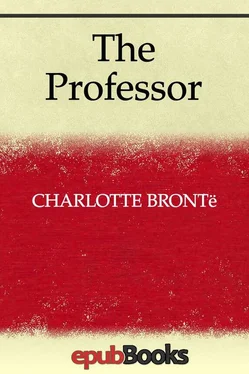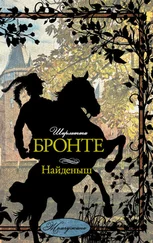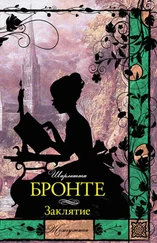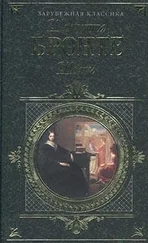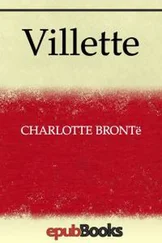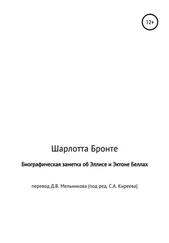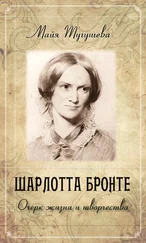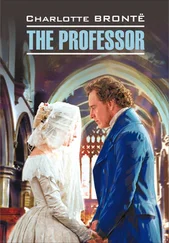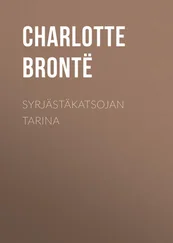Шарлотта Бронте - The Professor
Здесь есть возможность читать онлайн «Шарлотта Бронте - The Professor» — ознакомительный отрывок электронной книги совершенно бесплатно, а после прочтения отрывка купить полную версию. В некоторых случаях можно слушать аудио, скачать через торрент в формате fb2 и присутствует краткое содержание. Год выпуска: 2014, Издательство: epubBooks Classics, Жанр: Классическая проза, на английском языке. Описание произведения, (предисловие) а так же отзывы посетителей доступны на портале библиотеки ЛибКат.
- Название:The Professor
- Автор:
- Издательство:epubBooks Classics
- Жанр:
- Год:2014
- ISBN:нет данных
- Рейтинг книги:3 / 5. Голосов: 1
-
Избранное:Добавить в избранное
- Отзывы:
-
Ваша оценка:
- 60
- 1
- 2
- 3
- 4
- 5
The Professor: краткое содержание, описание и аннотация
Предлагаем к чтению аннотацию, описание, краткое содержание или предисловие (зависит от того, что написал сам автор книги «The Professor»). Если вы не нашли необходимую информацию о книге — напишите в комментариях, мы постараемся отыскать её.
The Professor — читать онлайн ознакомительный отрывок
Ниже представлен текст книги, разбитый по страницам. Система сохранения места последней прочитанной страницы, позволяет с удобством читать онлайн бесплатно книгу «The Professor», без необходимости каждый раз заново искать на чём Вы остановились. Поставьте закладку, и сможете в любой момент перейти на страницу, на которой закончили чтение.
Интервал:
Закладка:
"You see, therefore, monsieur, that I am now rich; richer almost than I ever hoped to be: I feel thankful for it, especially as my sight was beginning to be injured by constant working at fine lace; and I was getting, too, very weary of sitting up late at nights, and yet not being able to find time for reading or study. I began to fear that I should fall ill, and be unable to pay my way; this fear is now, in a great measure, removed; and, in truth, monsieur, I am very grateful to God for the relief; and I feel it necessary, almost, to speak of my happiness to some one who is kind–hearted enough to derive joy from seeing others joyful. I could not, therefore, resist the temptation of writing to you; I argued with myself it is very pleasant for me to write, and it will not be exactly painful, though it may be tiresome to monsieur to read. Do not be too angry with my circumlocution and inelegancies of expression, and, believe me
"Your attached pupil,
"F. E. HENRI."
Having read this letter, I mused on its contents for a few moments—whether with sentiments pleasurable or otherwise I will hereafter note—and then took up the other. It was directed in a hand to me unknown—small, and rather neat; neither masculine nor exactly feminine; the seal bore a coat of arms, concerning which I could only decipher that it was not that of the Seacombe family, consequently the epistle could be from none of my almost forgotten, and certainly quite forgetting patrician relations. From whom, then, was it? I removed the envelope; the note folded within ran as follows:
"I have no doubt in the world that you are doing well in that greasy Flanders; living probably on the fat of the unctuous land; sitting like a black–haired, tawny–skinned, long–nosed Israelite by the flesh–pots of Egypt; or like a rascally son of Levi near the brass cauldrons of the sanctuary, and every now and then plunging in a consecrated hook, and drawing out of the sea of broth the fattest of heave–shoulders and the fleshiest of wave–breasts. I know this, because you never write to any one in England. Thankless dog that you are! I, by the sovereign efficacy of my recommendation, got you the place where you are now living in clover, and yet not a word of gratitude, or even acknowledgment, have you ever offered in return; but I am coming to see you, and small conception can you, with your addled aristocratic brains, form of the sort of moral kicking I have, ready packed in my carpet–bag, destined to be presented to you immediately on my arrival.
"Meantime I know all about your affairs, and have just got information, by Brown's last letter, that you are said to be on the point of forming an advantageous match with a pursy, little Belgian schoolmistress—a Mdlle. Zenobie, or some such name. Won't I have a look at her when I come over! And this you may rely on: if she pleases my taste, or if I think it worth while in a pecuniary point of view, I'll pounce on your prize and bear her away triumphant in spite of your teeth. Yet I don't like dumpies either, and Brown says she is little and stout—the better fitted for a wiry, starved–looking chap like you. "Be on the look–out, for you know neither the day nor hour when your ―" (I don't wish to blaspheme, so I'll leave a blank)—cometh.
"Yours truly,
"HUNSDEN YORKE HUNSDEN."
"Humph!" said I; and ere I laid the letter down, I again glanced at the small, neat handwriting, not a bit like that of a mercantile man, nor, indeed, of any man except Hunsden himself. They talk of affinities between the autograph and the character: what affinity was there here? I recalled the writer's peculiar face and certain traits I suspected, rather than knew, to appertain to his nature, and I answered, "A great deal."
Hunsden, then, was coming to Brussels, and coming I knew not when; coming charged with the expectation of finding me on the summit of prosperity, about to be married, to step into a warm nest, to lie comfortably down by the side of a snug, well–fed little mate.
"I wish him joy of the fidelity of the picture he has painted," thought I. "What will he say when, instead of a pair of plump turtle doves, billing and cooing in a bower of roses, he finds a single lean cormorant, standing mateless and shelterless on poverty's bleak cliff? Oh, confound him! Let him come, and let him laugh at the contrast between rumour and fact. Were he the devil himself, instead of being merely very like him, I'd not condescend to get out of his way, or to forge a smile or a cheerful word wherewith to avert his sarcasm."
Then I recurred to the other letter: that struck a chord whose sound I could not deaden by thrusting my fingers into my ears, for it vibrated within; and though its swell might be exquisite music, its cadence was a groan.
That Frances was relieved from the pressure of want, that the curse of excessive labour was taken off her, filled me with happiness; that her first thought in prosperity should be to augment her joy by sharing it with me, met and satisfied the wish of my heart. Two results of her letter were then pleasant, sweet as two draughts of nectar; but applying my lips for the third time to the cup, and they were excoriated as with vinegar and gall.
Two persons whose desires are moderate may live well enough in Brussels on an income which would scarcely afford a respectable maintenance for one in London: and that, not because the necessaries of life are so much dearer in the latter capital, or taxes so much higher than in the former, but because the English surpass in folly all the nations on God's earth, and are more abject slaves to custom, to opinion, to the desire to keep up a certain appearance, than the Italians are to priestcraft, the French to vain–glory, the Russians to their Czar, or the Germans to black beer. I have seen a degree of sense in the modest arrangement of one homely Belgian household, that might put to shame the elegance, the superfluities, the luxuries, the strained refinements of a hundred genteel English mansions. In Belgium, provided you can make money, you may save it; this is scarcely possible in England; ostentation there lavishes in a month what industry has earned in a year. More shame to all classes in that most bountiful and beggarly country for their servile following of Fashion; I could write a chapter or two on this subject, but must forbear, at least for the present. Had I retained my 60l. per annum I could, now that Frances was in possession of 50l., have gone straight to her this very evening, and spoken out the words which, repressed, kept fretting my heart with fever; our united income would, as we should have managed it, have sufficed well for our mutual support; since we lived in a country where economy was not confounded with meanness, where frugality in dress, food, and furniture, was not synonymous with vulgarity in these various points. But the placeless usher, bare of resource, and unsupported by connections, must not think of this; such a sentiment as love, such a word as marriage, were misplaced in his heart, and on his lips. Now for the first time did I truly feel what it was to be poor; now did the sacrifice I had made in casting from me the means of living put on a new aspect; instead of a correct, just, honourable act, it seemed a deed at once light and fanatical; I took several turns in my room, under the goading influence of most poignant remorse; I walked a quarter of an hour from the wall to the window; and at the window, self–reproach seemed to face me; at the wall, self–disdain: all at once out spoke Conscience:—
"Down, stupid tormenters!" cried she; "the man has done his duty; you shall not bait him thus by thoughts of what might have been; he relinquished a temporary and contingent good to avoid a permanent and certain evil he did well. Let him reflect now, and when your blinding dust and deafening hum subside, he will discover a path."
Читать дальшеИнтервал:
Закладка:
Похожие книги на «The Professor»
Представляем Вашему вниманию похожие книги на «The Professor» списком для выбора. Мы отобрали схожую по названию и смыслу литературу в надежде предоставить читателям больше вариантов отыскать новые, интересные, ещё непрочитанные произведения.
Обсуждение, отзывы о книге «The Professor» и просто собственные мнения читателей. Оставьте ваши комментарии, напишите, что Вы думаете о произведении, его смысле или главных героях. Укажите что конкретно понравилось, а что нет, и почему Вы так считаете.
